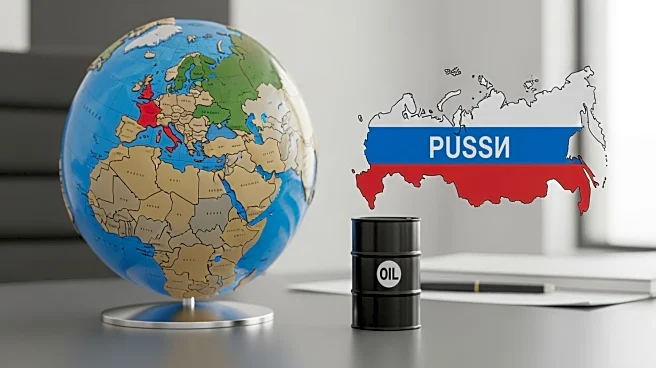What's Happening?
Hungarian Prime Minister Viktor Orbán is visiting Washington to meet with President Donald Trump, focusing on Russian oil imports and the ongoing war in Ukraine. Orbán leads a large delegation, emphasizing
the strong bilateral relations between Hungary and the United States. The visit comes amid tensions over Hungary's refusal to cut Russian oil imports, citing national security concerns. Despite U.S. sanctions on Russian energy companies, Orbán seeks an exemption from these tariffs, a request President Trump has not yet granted. The meeting also aims to discuss potential economic and energy cooperation packages to enhance Hungary's energy security.
Why It's Important?
The meeting between President Trump and Prime Minister Orbán is significant due to its potential impact on U.S.-Hungary relations and the broader geopolitical landscape. Hungary's reliance on Russian oil poses challenges to U.S. efforts to isolate Russia economically amid the Ukraine conflict. The discussions could influence Hungary's energy policies and its stance on Ukraine's EU accession, which Hungary currently blocks. The outcome may affect European energy security and diplomatic dynamics, with potential trade and defense deals on the table to ease tensions.
What's Next?
Hungary may propose increased purchases of liquified natural gas from the U.S. and explore joint ventures in nuclear energy to mitigate tensions over Russian oil imports. The meeting could also lead to defense cooperation agreements to strengthen Hungary's military capabilities. Additionally, the U.S. might leverage its influence to encourage Hungary to lift its veto on Ukraine's EU membership bid, aligning with broader European interests. The visit could result in symbolic victories for Orbán, maintaining his domestic political standing.
Beyond the Headlines
The closure of Szabad Europa, a critical Hungarian media outlet, highlights the complex interplay between media freedom and international diplomacy. The funding cut by the U.S. Agency for Global Media reflects tensions in U.S.-Hungary relations, with implications for media independence and public discourse in Hungary. This development underscores the broader challenges of balancing foreign policy objectives with democratic values.









